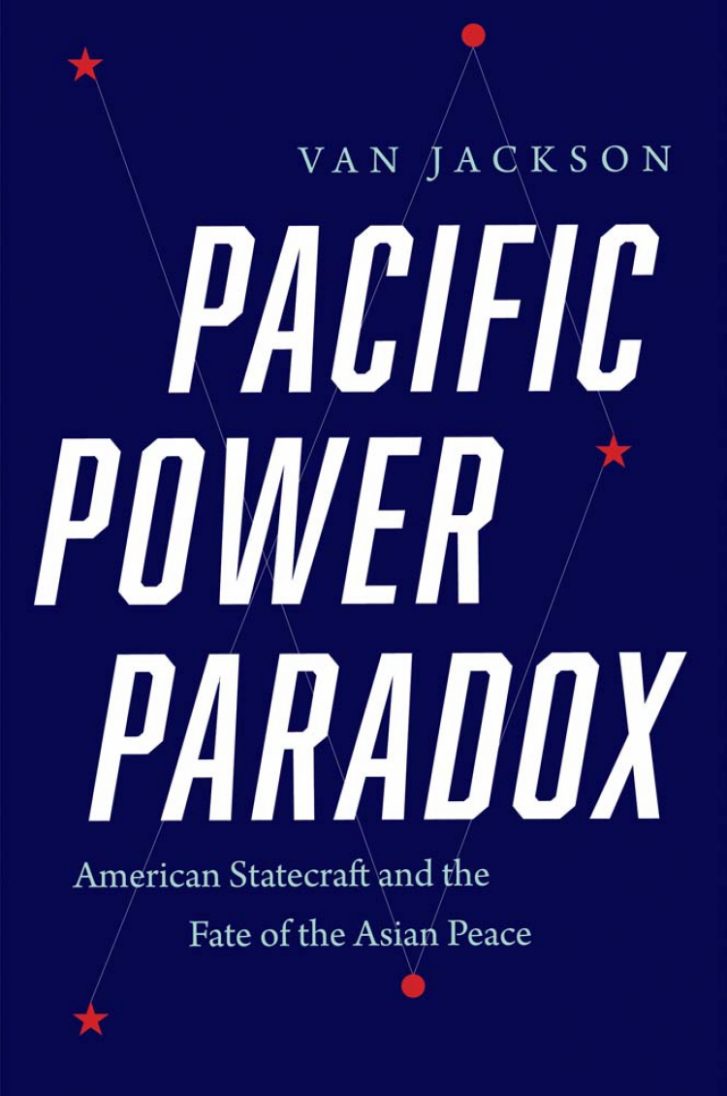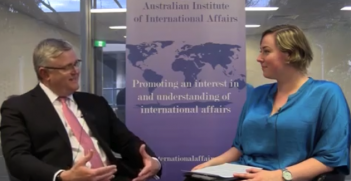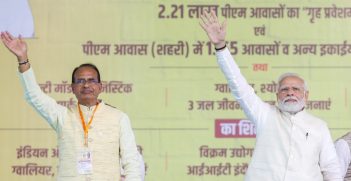Book Review: Pacific Power Paradox

In his new book, Pacific Power Paradox, Van Jackson seeks to correct our vision of the past through his argument that the US has not just been Asia’s firefighter for peace, but also its arsonist. Is the US an impediment to the pursuit of regional peace and security?
Since 1979, we have been living through a period known as “the Asian Peace.” There have been no interstate wars in East Asia or the Pacific during this period. This is a remarkable achievement for a region that experienced centuries of violence. This peace has also provided a key foundation for Asia’s rapid economic development, and democratisation in some cases. The Washington establishment firmly believes that the US has been a force for good in establishing and maintaining this peace. Former US secretary of state, Hilary Clinton, once said “We have been underwriting regional security for decades.”
Not so, argues Van Jackson in his new book, Pacific Power Paradox: American Statecraft and the Fate of Asian Peace. According to Jackson, a senior lecturer in international relations at Victoria University of Wellington, New Zealand, and former US Pentagon official, Asian peace would be in jeopardy today. Moreover, he argues that the US has been a major source of threat to that Asian peace, as well as being its occasional guarantor. This is the Pacific power paradox.
Throughout his well-documented and argued book, Jackson seeks to unpick the various aspects of the paradox. He argues that Asian peace, such as we know it, has depended on much more than American power. “It has also been bolstered by Sino-US detente, intra-Asian economic interdependence, regionalism (and the institutions, norms, and peace-building practices that constitute it) and to some extent even democratisation.”
Jackson highlights a suite of incidents and issues that demonstrate the precarity of Asian peace. The US and North Korea were on the brink of nuclear war in 2017. Taiwan has become an Asian flashpoint, as China expresses its impatience to bring this renegade territory under its control, while the US ramps up its military and political support for the island. In 2017 and 2020, a Sino-Indian border dispute escalated into violence with a number of deaths on both sides.
The South China Sea has become the region’s knottiest flash point, with China building up, occupying, and militarising several islands claimed by a number of neighbouring countries. And Myanmar has descended into civil war following a military coup in 2021. Today, China and the US have locked horns in great power rivalry, with some analysts predicting war in the near term. And old enmities, notably between Japan and South Korea, and Japan and China, are poisoning the prospects for peace. In sum, even during the best of times, trust among many countries is very low.
In Jackson’s analysis, the US has not always be a benign player, as suggested by Hillary Clinton. Indeed, he argues that the US presents three different faces towards Asian peace, and sometimes simultaneously – this is the essence of the Pacific power paradox. For the first, the US is seen as an “aloof hegemon,” when it is disinterested in particular events. Second, it can also be a vital bulwark against instability, during which moments the US kept Asia out of war.
But the third face of the US is that of the imperious superpower whose policies undermine Asia’s peace. Jackson argues that successive US presidencies have failed to see how American statecraft can impede more durable forms of security and inadvertently embrittles peace. Despite US strategies to maintain regional stability, the reality is it has declined. This is why America’s margin for geopolitical error is less now than ever before – meaning that we could expect disastrous consequences from future poor decisions. Jackson argues for policy solutions like peace building, treaty making, arms control, and regional institutions beyond the US, along with economic statecraft.
Overall, Jackson makes a strong argument regarding the adverse effect on Asian peace by various US actions. However, his reasoning is at times convoluted and questionable. And despite this book’s presentation of an “honest reckoning,” I doubt that many in the Washington establishment would disagree with Jackson’s contention that the US has made mistakes in its foreign policy.
But to my mind, the biggest shortcoming of Jackson’s analysis is that he does not present the whole story, especially when it comes to economic statecraft. In reality, the US has been in many ways the lead driver of Asian development, security, and peace. For example, the US has long offered much greater access to its markets than Asian countries do. Many of the global supply chains that animated Asia’s development have been led by US companies. The US has also played a leading role in educating Asian elites, as well as providing a refuge for Asians seeking greater freedom and opportunity.
In contrast, most observers believe that China’s assertive behaviour since the ascension of Xi Jinping to the country’s leadership presents a much greater threat to Asian peace. Indeed, in the midst of the present geopolitical tensions in Asia, countries like Australia, India, Japan, South Korea and the Philippines are strengthening their security ties with the US rather than with China. These countries see the US as an important contributor to Asian peace, and if anything they are calling for the US to be more involved in Asian geopolitics.
All that said, Jackson’s book is very thought-provoking and it shines a light on Asia’s fragile peace, and the impact that great powers can have on that peace. I believe however that it is also relevant to the long-term prospects for Asian peace that such a book which is rather critical of the US can be published by Yale, an American Ivy League university, whereas a book which is similarly critical of China or even India would not likely be published in either of those countries. Openness, rather than repression, is a key ingredient for peace in the Asia-Pacific.
This is a review of Van Jackson, Pacific Power Paradox: American Statecraft and the Fate of Asian Peace, (Yale University Press, 2023). ISBN: 9780300257281 (Hardcover).
John West is adjunct professor at Tokyo’s Sophia University and executive director of the Asian Century Institute. His book Asian Century … on a Knife-Edge was reviewed in Australian Outlook.
This review is published under a Creative Commons License and may be republished with attribution.





